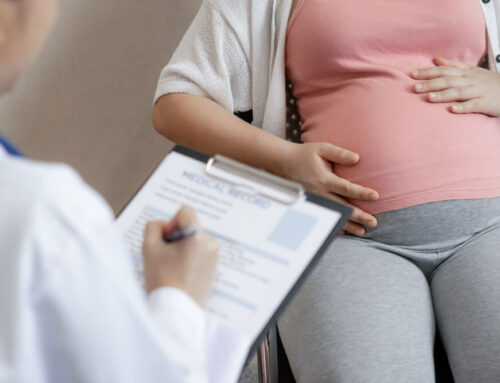Vaccinations are a cornerstone of public health, offering protection against a myriad of diseases. While most people are aware of the significance of vaccinations for infants and children, the importance of safe vaccines in pregnancy often goes overlooked. In today’s article, we will delve into the critical role of vaccines during pregnancy, prenatal immunizations, and we will talk about the question of can you get vaccinated while pregnant.
From routine screenings and preventive care to complex medical treatments and pregnancy management, you need to choose a medical center that delivers high-quality services with a focus on promoting optimal health outcomes for women of all ages. Clinic such as Women’s Health Partners have a team of dedicated healthcare professionals specializing in obstetrics, gynecology, and women’s wellness, and offers personalized care tailored to each patient’s unique needs.
Understanding Safe Vaccines in Pregnancy
Understanding safe vaccines in pregnancy is paramount for expectant mothers to make informed decisions about their health and the well-being of their unborn child. Contrary to common misconceptions, many vaccines are deemed safe for pregnant women and have been rigorously tested to ensure minimal risk. Vaccines such as the flu shot and Tdap (tetanus, diphtheria, and pertussis) are routinely recommended during pregnancy to protect both the mother and the developing fetus from serious infectious diseases.
These vaccines have undergone extensive research and clinical trials, demonstrating their safety and efficacy in pregnant populations. By understanding the safety profiles of these vaccines, expectant mothers can confidently receive immunizations that not only safeguard their health but also confer passive immunity to their newborns, providing them with vital protection during the vulnerable early months of life.
Consulting with healthcare providers and staying informed about recommended vaccinations during pregnancy empowers women to prioritize their health and ensure the best possible outcomes for themselves and their babies.
Exploring the Benefits of the Flu Shot During Pregnancy
Among the most recommended vaccines for pregnant women is the flu shot. Influenza poses a heightened risk to pregnant individuals due to changes in their immune system, heart, and lungs during pregnancy, making them more susceptible to severe complications from the flu. By receiving the flu shot during pregnancy, expectant mothers can significantly reduce their risk of contracting the flu and experiencing associated complications, such as pneumonia and preterm birth. Furthermore, when pregnant individuals receive vaccinations, it grants passive immunity to their newborns, providing crucial protection during the initial vulnerable stages of life. Here is a list of benefits:
- Reduced Risk of Maternal Influenza: The flu shot offers expectant mothers significant protection against contracting influenza during pregnancy, a period when their immune system may be compromised, making them more susceptible to infections.
- Prevention of Severe Complications: Pregnant individuals who receive the flu shot are less likely to experience severe complications associated with influenza, such as pneumonia, hospitalization, and even death, compared to those who remain unvaccinated.
- Protection for the Unborn Baby: Maternal vaccination with the flu shot provides passive immunity to the developing fetus, offering protection against influenza infection during the vulnerable prenatal period and early infancy.
- Lowered Risk of Preterm Birth: Studies have shown that receiving the flu shot during pregnancy is associated with a reduced risk of preterm birth, a significant concern that can lead to various health complications for both the mother and the baby.
- Enhanced Maternal Health: By reducing the likelihood of influenza infection and its associated complications, the flu shot contributes to overall maternal well-being during pregnancy, allowing expectant mothers to focus on a healthy pregnancy and childbirth experience.
- Community Protection: Maternal vaccination against the flu not only benefits the individual and her baby but also contributes to community immunity, reducing the spread of influenza and protecting vulnerable populations, including newborns and elderly individuals.
- Compatibility with Breastfeeding: The flu shot is safe for breastfeeding mothers, providing ongoing protection against influenza for both the mother and her breastfeeding baby, as maternal antibodies can be passed through breast milk.
- Convenience and Accessibility: Flu shots are readily available and recommended for pregnant women during flu season, making it convenient for expectant mothers to access the vaccine through healthcare providers, pharmacies, and community vaccination clinics.
- Peace of Mind: Choosing to receive the flu shot during pregnancy offers expectant mothers peace of mind, knowing that they have taken proactive steps to protect themselves and their unborn baby from the potentially serious consequences of influenza infection.
Addressing Common Concerns: Can You Get Vaccinated While Pregnant?
Many pregnant individuals are understandably cautious about receiving vaccinations, fearing potential harm to themselves or their babies. However, extensive research and clinical experience have shown that the benefits of vaccines during pregnancy far outweigh the risks. Healthcare providers routinely recommend vaccinations during pregnancy to protect both the mother and the developing fetus from serious infectious diseases. It is essential for expectant mothers to consult with their healthcare providers to understand which vaccines are recommended and safe for them during pregnancy.
Navigating Prenatal Immunizations
Navigating prenatal immunizations is a crucial aspect of comprehensive prenatal care, ensuring the health and well-being of both the expectant mother and her unborn child. Prenatal immunizations, including vaccines such as the flu shot and Tdap (tetanus, diphtheria, and pertussis), play a vital role in protecting pregnant individuals from infectious diseases and preventing transmission to their newborns.
These vaccinations not only safeguard maternal health but also confer passive immunity to infants, providing them with crucial protection during the vulnerable early months of life. Healthcare providers work closely with expectant mothers to assess their individual risk factors, vaccination history, and any contraindications to recommend appropriate prenatal immunizations.
By staying informed about recommended vaccines and engaging in open communication with their healthcare providers, expectant mothers can make informed decisions to ensure optimal health outcomes for themselves and their babies throughout pregnancy and beyond.
The Importance of Vaccines During Pregnancy
Vaccinations during pregnancy are a cornerstone of maternal and fetal health. By receiving safe vaccines during pregnancy, expectant mothers can protect themselves and their unborn babies from serious infectious diseases. These vaccines not only reduce the risk of illness and complications during pregnancy but also confer passive immunity to newborns, providing them with crucial protection during the vulnerable early months of life. As mentioned, it is crucial for pregnant individuals to discuss vaccination recommendations with their healthcare providers to ensure the best possible outcomes for themselves and their babies.
Conclusion
In conclusion, the importance of vaccinations during pregnancy cannot be overstated. Safe vaccines administered during pregnancy offer invaluable protection against a range of infectious diseases, safeguarding the health and well-being of both the expectant mother and her unborn baby.
By understanding the benefits of vaccines during pregnancy and consulting with their healthcare providers, pregnant individuals can make informed decisions to ensure a healthy pregnancy and birth. Let’s prioritize prenatal immunizations to promote maternal and fetal health for generations to come. Call us today and get informed by experienced professionals!





